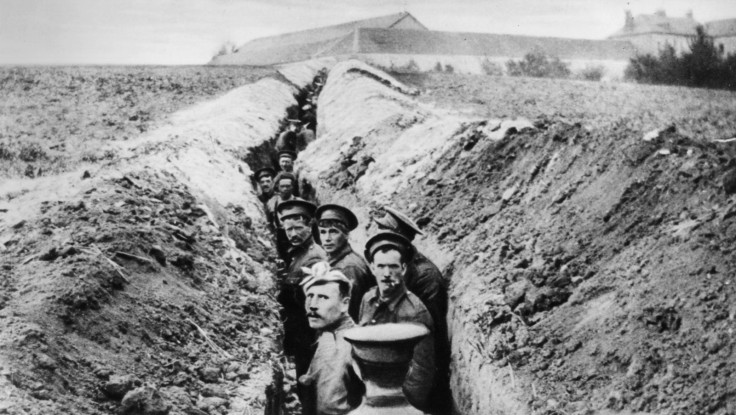Australia excludes families of fallen UK soldiers from Battle of Fromelles centenary commemorations

The Battle of Fromelles during World War 1 resulted in the death of 1,500 British soldiers. But the families of these fallen soldiers have been banned from attending the centenary commemorations scheduled to be held on 19 July at the Pheasant Wood military cemetery in Fromelles, near Lille in France.
The Australian Department of Veterans' Affairs has told descendants of the fallen British soldiers that they are not welcome at the memorial. Only those with Australian passports or residency are able to attend the service.
Jennifer Stephenson from the department said that the focus of the memorial will be on the Australian casualties. "This is not to diminish the role of other nations but simply a recognition of the Australian focus of the event we are organising," she explained.
About 3,200 accredited spectators will be allocated grandstand-style tiered seating. Other visitors will be expected to watch proceedings on screens set up in the town square, The Times reported.
The ill-fated Battle of Fromelles involved 20,000 British and Australian troops. They were tasked with diverting German forces from the main battlefield on the Somme, around 50 miles away. But the battle resulted in one of the highest casualty rates in any single battle in the war with more than 7,000 Allied troops dead or injured.
There has been some controversy over the decision by the British to proceed with the attack. The Australian 15th Brigade was sent into battle despite serious misgivings by its commanding officer Brigadier General Harold "Pompey" Elliot. He had tried to persuade the British commander-in-chief Sir Douglas Haig to call off the attack.
The then British general Richard Cyril Byrne Haking did not ease the tension either, He blamed the Australians for failing to press home the attack, saying that the troops "lacked offensive spirit." He said: "The attack, though it failed, has done both divisions a great deal of good."
The fallout over the memorial took a turn for the worse when British military historian Andrew Robertshaw said recently: "The battle was a disaster but it wasn't an exclusively Australian disaster.
He went on to say: "The Australians were regarded as good fighters but ill-disciplined and in turn they resented being colonial troops fighting British battles, though a surprisingly high proportion were not actually born in Australia."
More than 2,000 Australian troops died under the machine gunfire from a German stronghold, The decision to keep British relatives from the ceremony has not gone down well with some.
Michael Bemrose, whose grandfather Gunner Fred Bemrose was killed in the battle, has been making regular visits to the battlefield to pay his respects to the 250 Allied soldiers, whose remains were exhumed and re-interned in 2010. He had hoped to attend the ceremony.
"Men from both countries fought together and died together but now the Australians want to airbrush the British out of the battle. They have made a unilateral decision to bar the British by restricting access to Australian passport holders," Bemrose said.
© Copyright IBTimes 2025. All rights reserved.




















